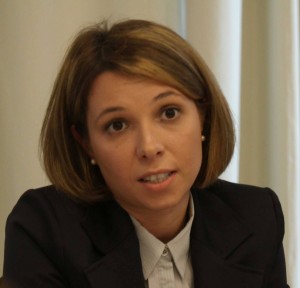 A number of circumstances determine fairness of elections in Georgia. Among them are the electoral system, transparency of political party financing, the scale of the use of administrative resources for the purpose of party campaigning, accuracy of the voters’ list, the level of civic education, the existence of free media, independent judiciary, active civil society and a strong opposition in the country.
A number of circumstances determine fairness of elections in Georgia. Among them are the electoral system, transparency of political party financing, the scale of the use of administrative resources for the purpose of party campaigning, accuracy of the voters’ list, the level of civic education, the existence of free media, independent judiciary, active civil society and a strong opposition in the country.
It’s hard to say which of them make elections fair, the fact is, that we cannot make considerable improvement of the electoral environment unless the progress refers to all the above listed factors.
The electoral system plays the essential role in the process. It is important to note, that ongoing reform of the Electoral Code slightly changes the existing electoral system by increasing the number of MPs, leaving unsolved the main issue, which is the disproportion between the number of votes received by a political party and the number of mandates in parliament. For example, under the existing electoral system, a political party which gets thirty percent or more of the votes in both the majoritarian and the proportional system of elections might form a constitutional majority in Parliament.
Unfortunately, the initiated draft of the Electoral Code does not address the problem of the ratio of received votes to the number of mandates in Parliament, which means that the composition of the future Parliament might not proportionally reflect the political moods among society. Accordingly, if the electoral system does not respond to this issue, the fairness of the elections will always be in question.
Another important element of fair elections is pre-election campaign regulations. Nobody doubts that the use of administrative resources is a common practice in Georgia during elections. Although formally all political parties should have access to administrative resources, in reality, they are only available to the ruling party.
Another problem is unlimited opportunity for political officials, such as governors, ministers, deputy ministers, chairpersons of municipal bodies, etc to participate in pre-election campaigning. These are the figures, who because of their official positions might have considerable influence not only over their subordinate public servants, but also on voters generally. Accordingly, without restricting the use of administrative resources and limiting the list of political officials authorized to participate in pre-election campaigning, equal opportunities for political parties for campaigning could not be achieved.
Transparency of party financing is another issue, which can also be improved through amending the Electoral Law. The latest NGO working meetings with Parliamentary Legal Committee and Ministry of Justice representatives have demonstrated a desire of the government to make positive steps in this direction. The main initiatives from the side of government reflect CRECO and Council of Europe recommendations against the corruption in funding of political parties and electoral campaigns, which in case of their implementation can make the party financing process more transparent.
The existence of free media and an independent judiciary are crucial elements for creating fair electoral environment in the country. Today, when all national broadcasters produce mainly biased and unbalanced news, it is hard to bring different political opinions to the public. Judiciary, decisions of which often serve political interests, do not appear to be the safeguard of political freedoms and guarantees for the citizens.
Upcoming Parliamentary and Presidential elections will be decisive for Georgian democracy. Today, one year ahead of the next elections, when the government tries to implement electoral reform, it should not be forgotten that the real changes in election environment will occur only in case the reform also takes into accout other elements of democratic institutions.
Nino Lomjaria is executive director of International Society for Fair elections and democracy. She holds a Master’s degree in law from Washington University in St. Louis, 2011, and a Master’s degree in law from Ivane Javakhishvili Tbilisi State University, 2006. She has been a lawyer and project coordinator at the Georgian Young Lawyer’s Association.

